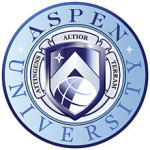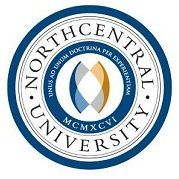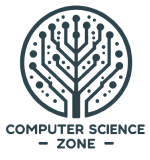
If you’re looking to take your career and experience in Computer Science to the terminal level, there’s no substitute for a doctorate degree. But how will you make the time to earn one? Luckily there are some incredible online choices.
Most Computer Science doctorates require some in-person participation, but on this ranking you’ll find a range of delivery formats that can fit your current schedule. You’ll also find programs that can be completed in 3-7 years, letting you determine the pace of your doctorate in computer science.
No matter what your computer science background, you’ll gain advanced skills in areas like:
- Network Security
- Graphics
- Operating Systems
- Machine Learning
- Algorithms
- Quantum Science
- Software Engineering
- And so much more.
You’ll find programs on this list that let you specialize in areas important to your current and future computer science career goals. A doctorate in computer science is your opportunity to carve out a sustainable, powerful and lucrative niche that aligns with your interests. There are significant perks, and trends that suggest this is a great choice in expanding your career in computer science:
- The Bureau of Labor Statistics found employment in computer science and information technology will increase 13% from 2016 to 2026, which means more than half a million new jobs (much faster than average occupations).
- This demand will require qualified professionals that can meet the growing need to digitally host, organize and secure evermore data.
- In some subsections of computer science like cyber security and information assurance, it’s predicted there will be millions of unfilled jobs in the coming years.
In these programs, you can expect to take fascinating courses in evolving areas like:
- Artificial Intelligence
- Designing Algorithms
- Analyzing Big Data
- Futuring and Innovation
- Cybersecurity Management
- Among much more.
You’ll often have chances to select courses that reflect your career goals and interests, and do vital research before building and defending a thesis. You’ll be qualified to work in positions like:
- Postsecondary teacher – Median Salary: $77,570
- Computer Network Architect – Median Salary: $101,210
- Computer and Information Research Scientist – Median Salary: $111,840
- Computer and Information Systems Manager – Median Salary: $135,800
The following programs were ranked on the following:
- Affordability
- Research Prestige
- Support/Flexibility
- Special Features.
1) Mississippi State University

MSU is a public, land-grant university that was established in 1878. It’s based in Oktibbeha County, Mississippi. MSU has been designated an “R2: Doctoral Universities – Higher Research Activity“ by the Carnegie Classification of Institutions of Higher Education. MSU offers undergraduate, graduate and doctoral degrees through schools of Agriculture and Life Sciences, Architecture Art and Design, Arts and Sciences, Business, Accountancy, Education, Engineering, Chemical Engineering, among others. MSU serves over 21,800 students with a 20:1 student-to-faculty ratio. Between 2002 and 2009, it raised $462 million through private gifts and pledges, which it’s invested back into its programming. MSU has received a number of accolades, including ranking 36th in the country by the Social Mobility Index college rankings, and 18th nationally in Forbes magazine’s “America’s Best College Buys.”
MSU offers online Ph.D’s in Computational Engineering and Electrical & Computer Engineering. These programs are equivalent to their on-campus counterparts in terms of admission selectivity, prestige and degree requirements. The Computational Engineering program features classes in MSU’s departments of Aerospace, Mechanical Engineering, Computer Science, Math, and more. Students will do significant distance research and be prepared to work as engineers and scientists in major national laboratories, like in the Department of Defense, NASA or the Department of Energy. The Doctor of Philosophy (Ph.D.) in Electrical and Computer Engineering (ECE) requires 24 credit hours of course work and 6 credit hours of Research/Thesis, or 30 credit hours of coursework in the non-thesis option of the program.
- Homepage
- Cost: 2nd ($499 per credit hour)
2) Dakota State University

DSU is a public, technology-focused university. It began in 1881 in Madison, South Dakota. DSU is known for graduate and undergraduate programs in computer science, business, education, natural sciences, liberal arts and more. Its motto is, “Technically, we’re better.” The school has more than 3,300 students and a 7:1 student-to-faculty ratio, and most of its graduate students attend DSU through online classes. In 2013, DSU ranked 4th among online schools in the United States on Guide to Online Schools’ rankings that year. It also tied at #32 among top public schools in the 2017 U.S. News & World Report’s midwest rankings. The school has been repeatedly designated by the United States Department of Homeland Security and the National Security Agency as a National Center of Academic Excellence (CAE), and designated for its programming in cyber operations, cyber defense education, cyber defense research, and information assurance research.
DSU offers an online Doctors of Science degree in Information Systems. It comes in three specializations: Analytics and decision support, Information assurance and computer security, and Healthcare information systems. These options helped its placement in our rankings. It gives students an advanced education in applications and research practices, with the goal of creating and supporting new IT innovations. The school notes its relationship with organizations like the NSA, CIA, Navy SPAWAR, Department of Homeland Security, Johns Hopkins University’s Applied Physics Lab, Army INSCOM, Carnegie Mellon’s Software Engineering Institute and MIT’s Lincoln Lab, who all need to fill advanced information systems positions with qualified candidates. Students can also choose between full and part-time attendance, and complete this program in 3-7 years.
- Homepage
- Cost: 3rd ($557 per credit hour)
3) Aspen University

Aspen is a private, for-profit, distance learning university. It was founded in 1987. It offers undergraduate and graduate degrees in nursing, education, computer science, technology, information systems, business, project management, counseling, and criminal justice. It’s owned by the Aspen Group, Inc, which is publicly held. Its goal is to make college more affordable. Currently there are just under 5,000 students, and Aspen offers a 20:1 student-to-faculty ratio. Aspen is known for its specialty degrees in Criminal Justice, Nursing, Early Childhood Education, Education, Business Administration, Information Management, Information Systems, Information Technology and Computer Science. It’s accredited by the Distance Education Accrediting Commission (DEAC)
Aspen offers an online Doctor of Science in Computer Science. Students will gain advanced skills in research methodology and analytical thinking, and build off of foundational computer science knowledge to qualify for advanced careers in computer science. You’ll learn how to assess technologies and applications, find their pitfalls, and help imagine and create ways how they can be improved. Its curriculum includes “Technique and Interpretation for Advanced Statistical Research; Doctoral Writing and Inquiry into Research; and Technology and Innovation Management with core courses including Algorithm Design, Artificial Intelligence, and System Metrics and Risk Analysis.” The program builds towards developing, researching and writing a doctoral dissertation.
- Homepage
- Cost: 1st ($337 per credit hour)
4) Colorado Technical University

CTU is a for-profit, primarily online university, headquartered in Colorado Springs. It began in 1965. Over 25,500 students attend CTU, and it has a 28:1 student to faculty ratio. Most of them attend the school online. CTU offers degrees through colleges of Business & Management, Engineering & Computer Science, Health Sciences, Information Systems & Technology, Security Studies and Project Management. The school is largely funded by the Department of Defense and GI Bill, a major employer within Information Assurance. In 2015, CTU was ranked 58th on the U.S. News & World Report list of Best Online Programs. CTU has been consistently recognized for its online degree programs, and its online bachelor’s degree programs have been ranked among the Best Online Bachelor’s Programs by U.S. News and World Report for several consecutive years.
CTU offers a Doctor of Computer Science that comes in concentrations of Big Data Analytics, Enterprise Information Systems, and Cybersecurity and Information Assurance (adding to its utility and flexibility). It can be completed mostly online, with a residency component. You’ll learn to predict trends and contribute significantly in the specialization area you choose. Students will do intensive research and writing projects, explore advanced design issues, assess practices of maintaining security in complex systems, build software process improvement plans, design, test and run experiments, and report on their results. The program puts significant emphasis on doctoral research and guiding students through building their dissertation. This program can be completed in three years.
- Homepage
- Cost: 4th ($598 per credit hour)
5) Northcentral University

Northcentral is an online, for-profit university founded in 1996. NCU is a Doctoral Research University, and is based in San Diego, California. Currently, the school is owned by Rockbridge Growth Equity, LLC and Falcon Investments, LLC. Northcentral offers undergraduate, graduate, specialist, and doctoral degrees through its schools of Business, Technology, Education, Health Sciences, Social and Behavioral Sciences. The school’s mottos is “One-to-One Education By Experience.” NCU serves over 10,700 students, and offers an exceptionally rare 1:1 student-to-faculty ratio, giving students of all ages and educational backgrounds the focused attention they need to succeed. Its business and computer science degrees are accredited by the ACBSP.
NCU offers a 100% online Doctor of Philosophy in Computer Science. It begins every Monday, letting you start much quicker than comparable programs. It’s made up of 20 courses (60 credit hours), and a recommended completion time of 50 months. NCU blends creativity and technology, computer science theory and research. You’ll be asked to propose research, do significant hands-on exercises, and build an advanced knowledge of computer science, in areas like: software engineering, artificial intelligence, data mining and cybersecurity. Throughout it all, you’ll get one-to-one instruction to make sure you’re not just finishing the program, but absorbing its advanced concepts, methods and techniques properly.
- Homepage
- Cost: 6th ($777 per credit hour)
6) Nova Southeastern University

Nova Southeastern University is a private, nonprofit university headquartered in Fort Lauderdale, Florida. It was founded in 1964 with an initial class of 17 students. Its motto is, “engage, inspire, achieve.” NSU has 16 colleges, featuring 150 programs and more than 200 majors. It offers degrees in law, business, osteopathic medicine, allied health, pharmacy, dentistry, optometry, physical therapy, occupational therapy, and nursing. Nearly 20,800 students attend Nova, which has a 17:1 student-to-faculty ratio, and it has produced over 172,000 alumni. NSU has been consistently recognized as a quality research and community engaged university. It’s 1 of only 50 universities nationwide be awarded Carnegie’s Community Engagement Classification.
Nova offers a hybrid PhD in Computer Science program that requires a mix of on-campus participation and online study. This program requires students to complete eight core courses (chosen from ten) for 32 credits, eight credits of doctoral research, and a dissertation, which students will defend twice: when they propose it during early research, and once it’s finished. Sample classes students choose from include Artificial Intelligence, Theory and Principles of Programming, Computer Graphics, Knowledge Discovery in Databases, Operating Systems, Database Management Systems, and several others. Students must meet a number of prerequisites to qualify for this program, which is intended for professionals in the field that are able to meet quarterly over extended weekends in Fort Lauderdale, and work on assignments, research and participate in other online activities.
- Homepage
- Cost: 5th ($754 per credit hour)
7) Clarkson University

Clarkson is a private research company headquartered in Potsdam, New York. It was founded in 1896. Over 4,200 students attend Clarkson, which has a 14:1 student-to-faculty ratio. It has been noted for boosting the salary earnings of its graduates. Clarkson offers bachelor’s, master’s, and doctoral degrees through its Institute for a Sustainable Environment, School of Arts & Sciences, School of Business and the Wallace H. Coulter School of Engineering. In total, Clarkson offers 60 undergraduate and graduate programs in engineering, business, sciences, humanities and arts, education, and health professions. It offers Bachelor’s, Master’s, Certificates and Doctoral degrees. The school also boasts an engaged 42,000+ alumni community that live in over 80 countries.
Clarkson offers a Computer Science PhD that requires both online and on campus study at Clarkson. It requires 36 credits, and must be completed within seven years after admission. Students in this program take four required courses including two theory courses, one in systems and one in languages. They also take four research courses, then choose four courses in theory and algorithms, computer systems and networks, languages and software development, artificial intelligence and applications, in addition to other electives. Students must also propose a thesis, create it and then defend it. This program is a collaboration between Clarkson’s departments of Electrical & Computer Engineering and Computer Science.
- Homepage
- Cost: 9th ($1,388 per credit hour)
8) Columbia University

Columbia is a private, Ivy League, research university founded in upper Manhattan in 1754. It is the oldest college in NY state, and the fifth institution of higher learning in America. Columbia is known for its selectivity, and accepts less than 6% of applicants. Over 30,400 students attend Columbia, which has a sparkling 6:1 student-to-faculty ratio. It’s especially known for its graduate schools, and offers a wealth of Master’s and Doctoral degrees. USNR ranked it 5th among “national universities” and 8th in its best global universities ranking for 2017. USNR also ranked Columbia’s Fu Foundation School of Engineering and Applied Science (which offers its PhD in Computer Science) 13th in the nation. Its alumni include three U.S. presidents, 29 foreign heads of state, 10 Justices of the United States Supreme Court, 95 Nobel laureates, 101 National Academy members, 38 living billionaires, and won a slew of Academy Awards, Pulitzer Prizes and Olympic medals.
Columbia offers a partially online Computer Science Doctoral Degree. It’s for students who earned their Computer Science MS with Columbia, so if you are looking to break into an elite graduate Computer Science program, that’s where to start. This program 30 credits to complete. Its focus is research, and students begin as research apprentices before becoming junior colleagues that work with faculty on important research projects. Students are guided through this research by a research advisor, and eventually a thesis advisor, (usually the same person to maintain consistency). Students select courses based on focuses including network security, artificial intelligence, machine learning, natural language processing, computer graphics, web technologies, robotics, databases and information systems, compilers, programming languages, software engineering, computational biology, algorithms and quantum computing.
- Homepage
- Cost: 11th ($2,018 per credit hour)
9) Johns Hopkins University

Johns Hopkins is an elite private research university. It was founded in 1876, in Baltimore, Maryland. The school’s founder was abolitionist and entrepreneur Johns Hopkins. Over 25,100 students attend Johns Hopkins, which has a very low 7:1 student to faculty ratio. It conveys undergraduate, graduate and doctoral degrees through 10 divisions and campuses in Maryland, Washington, D.C., Italy, China, Singapore, and of course, online. It’s now ranked 11th among American “national universities” by U.S. News & World Report, and was respectively ranked 14th and 10th in the world by Academic Ranking of World Universities and USNR in 2017. For those interested in cyber security, it offers several concentrations, along with its other computer science programing. Johns Hopkins is known for the immaculate reputation of its faculty, funding and infrastructure.
Johns Hopkins offers a Doctorate of Engineering program and a PhD equivalent in Computer Science. The former is for mid-career students, and the latter is for early-career students. The DEng program is non-residential, and online. It involves creating a real-world project related to an engineering challenge from your current workplace. Students will work on this project for approximately three years, building a final portfolio that includes prototypes, plans, patent applications, computer simulations, and user manuals. Its PhD equivalent is for early-career students, and offers focus areas like Big Data and Cloud Computing, Bioinformatics, Cybersecurity, Data Communications and Networking, Database Systems and Knowledge Management, Enterprise and Web Computing, Human-Computer Interaction and Visualization, Software Engineering, Systems, Theory, Telecommunications and Networking. Graduates are routinely recruited by companies like Microsoft, Google, Intel, and Apple. Johns Hopkins has an excellent track record helping qualified students that can’t afford its education get financial aid and scholarships.
- Homepage
- Cost: 10th ($1,679 per credit hour)
10) Wright State University

WSU is a public research university in Fairborn, Ohio. It was founded in 1967, after becoming independent of Ohio State University and Miami University. Wright serves almost 16,000 students, and offers a 14:1 student-to-faculty ratio. It conveys bachelor’s (over 90 programs), and master’s and doctoral degrees (more than 130 programs) through schools of Education and Human Services, Business, Liberal Arts, Nursing and Health, Science and Mathematics, and more. Recently the school has banned tobacco, and offers courses to help students and staff quit tobacco. It’s ranked 231st in the nation by USNR.
Wright offers a Ph.D. in Computer Science and Engineering. It can be taken full or part-time, and courses are offered in the day, evening, or online. Students can expect incredible faculty and laboratory facilities, a curriculum that grapples with theory, software, and hardware, and exciting opportunities to work with faculty members on research projects. Prospective students should have a solid background in computer programming, organization, data structures and algorithms, programming languages, operating systems, and more. The program builds towards completing a dissertation, and its defense. Graduates will contribute to industry journals, do independent research in areas of expertise, and be able to efficiently communicate advanced technical concepts to peers, among other outcomes.
- Homepage
- Cost: 7th ($1,125 per credit hour)

